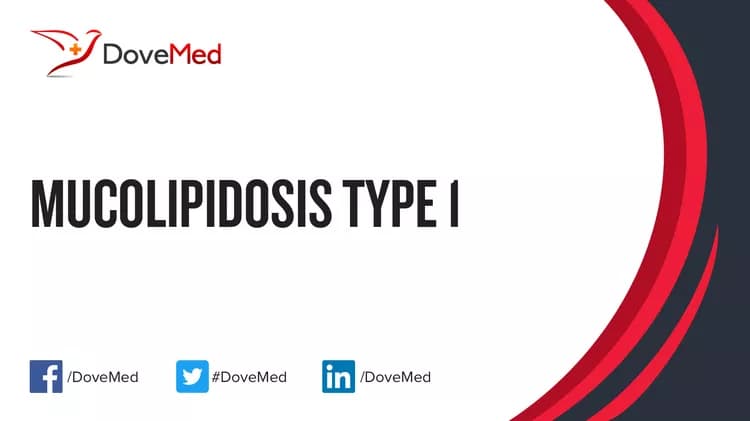The topic Mucolipidosis Type 1 (ML1) you are seeking is a synonym, or alternative name, or is closely related to the medical condition Sialidosis.
Quick Summary:
- Sialidosis is a rare, inherited genetic disorder that is caused by mutation in the NEU1 gene. Mutations in this gene are inherited in an autosomal recessive manner
- It is classified into 2 types, namely type I and type II, depending on the age of presentation of symptoms and their severity:
- Sialidosis Type I: Also known as the Cherry-Red Spot Myoclonus Syndrome, it is the less severe form, mostly affecting the eye. The age of onset is typically in the teens or later
- Sialidosis Type II: It is the more severe form, presenting characteristic facial features. It is further divided into 3 subtypes
- Sialidosis Type II subtypes:
- Sialidosis, congenital type: It is the most severe form and the symptoms are observed in the developing fetus
- Sialidosis, infantile type: It is a moderately severe form, with symptom-onset occurring in the first year after birth of the child
- Sialidosis, juvenile type: It is the least severe subtype, with symptoms presenting in late childhood
- The characteristic symptoms of type I Sialidosis include abnormal gait, reduced vision acuity, muscle twitches, lack of coordination, and seizures
- The more severe type II form can lead to fluid accumulation in the fetal abdomen, present coarse facial features (such as a large head, thickened skin, widely-spaced teeth), enlarged spleen and liver, bone abnormalities, and early developmental delays. The congenital form of Type II Sialidosis presents the most severe symptoms, followed by the infantile and juvenile forms
- In order to diagnose the disorder, the healthcare provider may perform a thorough physical examination, assess the symptoms, and evaluate family and individual medical history. Further, diagnostic tests, such as imaging studies for detecting bone deformities, microscopic analyses of tissues, and confirmatory genetic testing, may be performed
- The potential complications of Type I Sialidosis are progressive deterioration of vision and loss of mobility. Type II complications may be fatal and can include progressive deterioration in vision, severe bone deformities, and stillbirths
- Treatment for Sialidosis is generally supportive, and is tailored to making the affected individual as comfortable as possible. Medication to control seizures may be necessary, in some cases
- The prognosis of Sialidosis depends on the type of the disorder. Whereas the type I form is not reported to affect life expectancy, the type II form is known to be fatal; most individuals succumb to the disorder, before they reach 20 years of age
Please find comprehensive information on Sialidosis regarding definition, distribution, risk factors, causes, signs & symptoms, diagnosis, complications, treatment, prevention, prognosis, and additional useful information HERE.
Related Articles
Test Your Knowledge
Asked by users
Related Centers
Related Specialties
Related Physicians
Related Procedures
Related Resources
Join DoveHubs
and connect with fellow professionals


0 Comments
Please log in to post a comment.